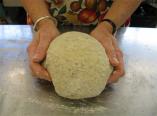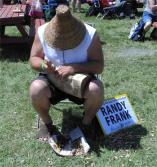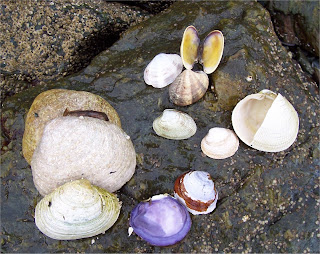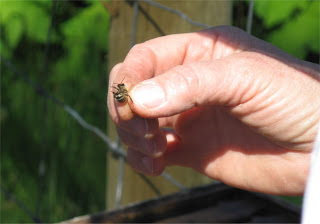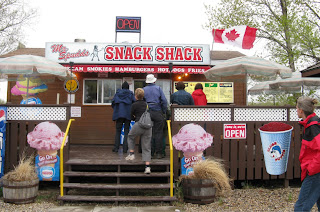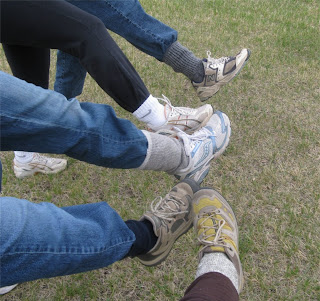A while back, Ruth happened to mention she was looking for another driver to help her move her stuff across this chain of Tim Horton’s we call Canada. And so I stepped forward as co-pilot, co-driver, menu scrutineer and chief gastro-whinger.
Before leaving I enjoyed a pleasant Victoria Saturday with Judy and Peg, drooling over the baked goods at Moss Street Market
and then being treated to a quartet of Ferris‘ finest rockefeller oysters…
Have left Anton, who has been doing a good impersonation of a living vacuum cleaner at mealtimes, to convalesce from his (successful) eye op in Sidney.
It’s all started well. Ruth left the lot this morning with the U-Haul van; my mission was to drive her car to her house; only her car refused to start for me (I think it was suffering some separation and relocation anxiety and plain just didn’t like me, as it later started willingly for Ruth). Not a problem though; the car needed to be hitched to the van once it was packed anyway, so I was able to just leave it in the lot and wander around while Ruth’s burly men packed her earthlies into a compact space. Which they did with alarming speed!
Then, ready to head off, there were some more fraught moments in the lot while the cheerful attendant could not find a database listing for the car model we wanted to hitch to the van (which would have meant we would have had to haul a longer, heavier car trailer instead of a dolly). But the heroic general manager finally sussed it out and gave us the all clear, and off we lumbered to the ferry, which we made in plenty of time.
We managed to get to Hope, where the mountains are wreathed in fog, so it was lucky we meant to stop here. After some veggie burger and spinach salad
a good ol’ meat loaf dinner
and a shared piece of lemon meringue
from the Home Restaurant’s justly famous pie case, we had a stroll round the local supermarket where they had proudly flagged Local Products (the cashier explained this meant products that had been packed in Burnaby, rather than in China or Mexico or someplace – hence you could buy “Local” almonds, dates, raisins and escargot seasoning!), and soon we will tumble into dreams, resting up for tomorrow’s haul through the mountains.



